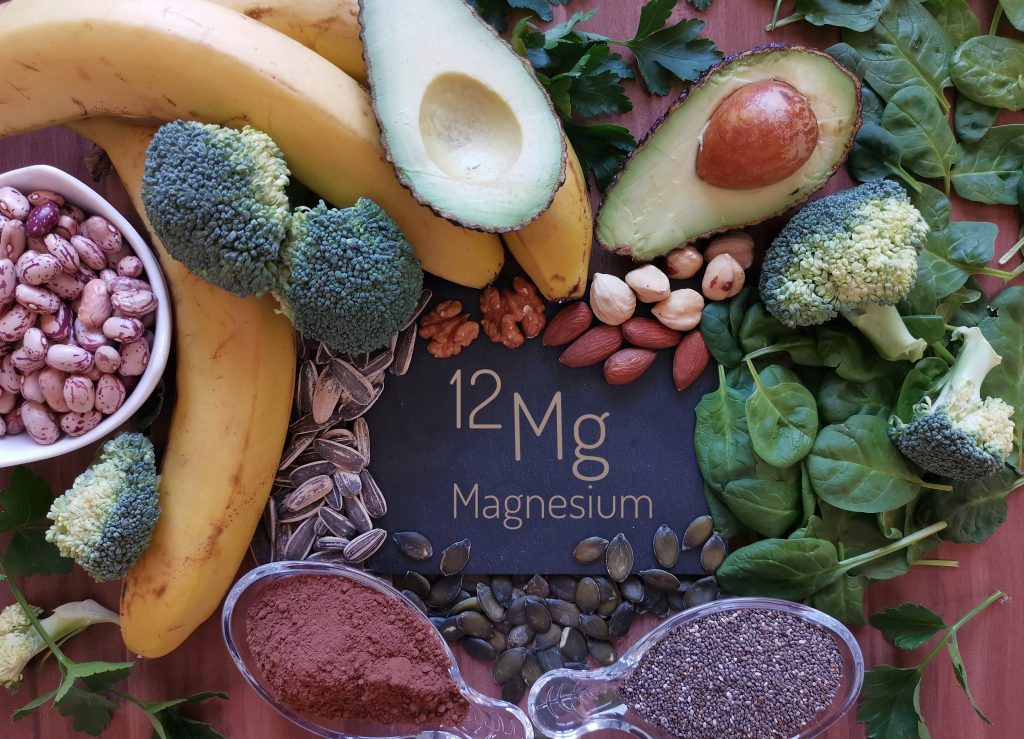What is Magnesium I hear you say?
Magnesium is one of seven essential minerals that the body needs to function normally. It’s not produced in the body, so it has to be obtained through external sources. It needs to be consumed through foods or supplements.
What role does magnesium play in the body?
How much time have you got? Seriously! Magnesium is the Swiss Army Knife of minerals. Magnesium is involved in almost every major metabolic and biochemical process. It helps in DNA and RNA synthesis, blood pressure regulation, nerve transmission, insulin metabolism, cardiac regulation, electrolyte balance, energy production, bone development, and the all-important stress-response system, which we’ll get back to shortly.
How much magnesium does a child need?
Daily magnesium requirements vary substantially by child and age range. Some ballpark numbers for reference are below.
Your pediatrician/GP will be much better suited to giving you some specific numbers based on your baby’s weight and medical history.
Birth – 6 months: 30 mg
7 – 12 months: 75 mg
1 – 3 years: 80 mg
4 – 8 years: 130 mg
How is magnesium usually obtained?

Ideally, we should be getting our required intake of magnesium through our diet. It can be found in a wide variety of foods, including grains, nuts, bran, spinach, squash, okra, swiss chard, kale, peas…
Are you seeing a bit of a trend here? This list sounds to me like a toddler composing a straight-up laundry list of foods that they would want to stay away from – right?
It’s not surprising that a lot of kids aren’t getting the required amount of magnesium through their diets. I don’t know a lot of three year-olds who willingly munch on kale chips. Come to think of it, I don’t know many adults who like them either…
What does this have to do with sleep?
Alright, so as I mentioned, magnesium plays a big role in the body’s stress-response system. If you’re interested, you can read all about it here.
The main point, for the purposes of this discussion, is that without sufficient magnesium, the body struggles to regulate cortisol levels. This can lead to elevated alertness levels. That’s obviously something we want to prevent when your baby is going from one sleep cycle to the next during the night.
When a baby has great sleep skills, is comfortable and secure when they stir after a sleep cycle, they will drift effortlessly back into another cycle. Elevated alertness and stress levels will obviously make that a lot more difficult.
So why am I telling you this?
The truth is, not every baby who doesn’t sleep well is in need of a major overhaul of their sleep habits. If there’s a quick and easy fix that can get them (and their parents) sleeping through the night, I’m all for it!
Sometimes there really is a quick and easy fix! It’s not the norm, but I’ve seen it plenty of times. Taking away the iPad an hour before bed, getting rid of distractions in the nursery etc. There are situations where making one simple adjustment can make a world of difference. When that’s the case, I love being able to pinpoint it, make the change, and see the impact it has on the family’s health and well-being.
When a baby has got a magnesium deficiency, getting that sorted is a great step towards better overall health. It just might be the cure for their sleepless nights as well. Adding some more magnesium to their diet and a consult with your pediatrician/GP would be the first steps.
If you continue to struggle afterwards, however, I’m here to help you take the next step and teach them those fundamental sleep skills so that your whole family can start getting the sleep you need.
For personalised help to teach your little one to fall asleep independently, please reach out.



